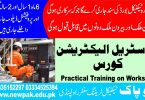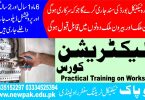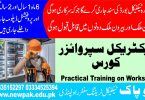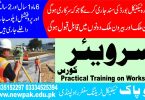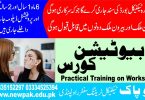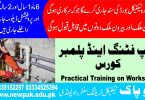
Welding Course In Rawalpindi Islamabad
Our Welding Course provides comprehensive welding training designed for beginners and those seeking to advance their skills. Covering essential welding processes like SMAW, GMAW, and GTAW, this course emphasizes hands-on practice, safety protocols, and blueprint reading. Whether you’re aiming for a career in fabrication, industrial welding, or construction, this program equips you with practical skills and a recognized welding certificate to boost your job prospects. Enroll today to start your journey in one of the most in-demand trades!
Course Overview
This comprehensive welding course offers practical training from basic to advanced techniques over 6 months or 1 year. Students learn various welding processes (SMAW, GMAW, GTAW), safety protocols, blueprint reading, and quality control. Upon completion, participants receive a recognized welding certificate, preparing them for industrial and fabrication careers.
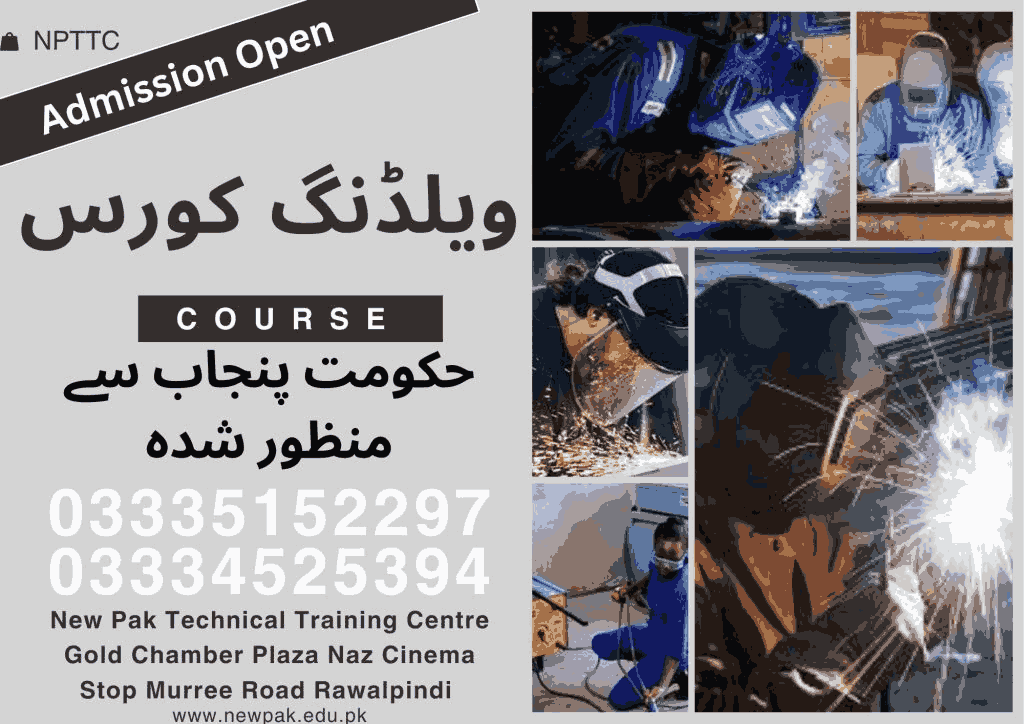
Course Duration
06 | Months
- Introduction to Welding & Joints
- Welding Processes (SMAW, GMAW, GTAW)
- Hands-on Welding: SMAW
- Hands-on Welding: GMAW/FCAW
- Welding Safety and PPE
- Blueprint Reading & Weld Positions
01 | Year
- Introduction to Welding & Joints
- Welding Processes (SMAW, GMAW, GTAW)
- Hands-on Welding: SMAW
- Hands-on Welding: GMAW/FCAW
- Welding Safety and PPE
- Blueprint Reading & Weld Positions
- Welding Defects & Quality Control
- Welding Codes & Standards (ASME, AWS, ISO)
- Fabrication & Layout Techniques
- Capstone Project & Career Preparation
Course Outline (6 Months)
Fundamentals of Welding
Month 1
- Introduction to welding: definition and importance
- Heat transfer principles and metallurgy basics
- Welding joints and positions (flat, horizontal, vertical, overhead)
- Welding symbols and terminology
Welding Processes Overview
Month 2
- SMAW (Shielded Metal Arc Welding): theory & basic application
- GMAW (Gas Metal Arc Welding): setup and techniques
- GTAW (Gas Tungsten Arc Welding): introduction and demo
- Comparison of welding processes: advantages & limitations
Hands-On Welding – SMAW
Month 3
- SMAW equipment setup and electrode selection
- Striking arc and bead techniques
- Practicing fillet and groove welds in flat and horizontal positions
- Troubleshooting common SMAW defects
Hands-On Welding – GMAW & FCAW
Month 4
- GMAW (MIG) welding practice: parameters & metal types
- FCAW process introduction and use cases
- Welding on different joint types: lap, T-joint, butt
- Safety during GMAW/FCAW operations
Welding Safety and PPE
Month 5
- Welding hazards: fumes, UV radiation, electric shock
- PPE: helmets, gloves, jackets, and respiratory protection
- Fire prevention, ventilation, and confined space protocols
- Welding safety codes and emergency procedures
Blueprint Reading & Welding Positions
Month 6
- Reading and interpreting welding blueprints
- Understanding weld symbols, sizes, and notations
- Joint preparation based on blueprint specifications
- Practice in vertical and overhead welding positions
Course Outline (1-Year)
Months 1–6: Core Concepts of Welding Course In Rawalpindi Islamabad
(Same course content as the 6-month program but with more detail, role-plays, software demos, and assessments.)
Advanced Welding Techniques
Month 7
- GTAW (TIG) advanced applications on stainless steel & aluminum
- Submerged Arc Welding (SAW): equipment, usage, and control
- Multi-pass welding and weld overlays
- Practice: pipe welding basics
Welding Defects & Quality Control
Month 8
- Types of weld defects (cracks, porosity, undercut, etc.)
- Non-destructive testing (NDT) methods: visual, ultrasonic, radiographic
- Weld defect analysis and correction
- Documenting weld inspections
Welding Standards and Codes
Month 9
- Overview of ASME, AWS, and ISO welding standards
- Welding Procedure Specifications (WPS)
- Procedure Qualification Records (PQR)
- Welder Performance Qualification (WPQ)
Welding for Structural & Pipe Applications
Month 10
- Structural steel welding: applications and setup
- Introduction to pipe welding (butt and socket welds)
- Alignment, clamping, and rotating techniques
- Advanced position welding (5G, 6G practice demo)
Fabrication and Layout Techniques
Month 11
- Fabrication planning and layout tools
- Measuring and marking for precision
- Tack welding and assembly
- Welding distortion control techniques
Capstone Project & Career Preparation
Month 12
- Final welding project (fabrication of a structure or pipe section)
- Quality control checklist and inspection reports
- Resume building and job readiness
- Overview of career pathways and certification opportunities
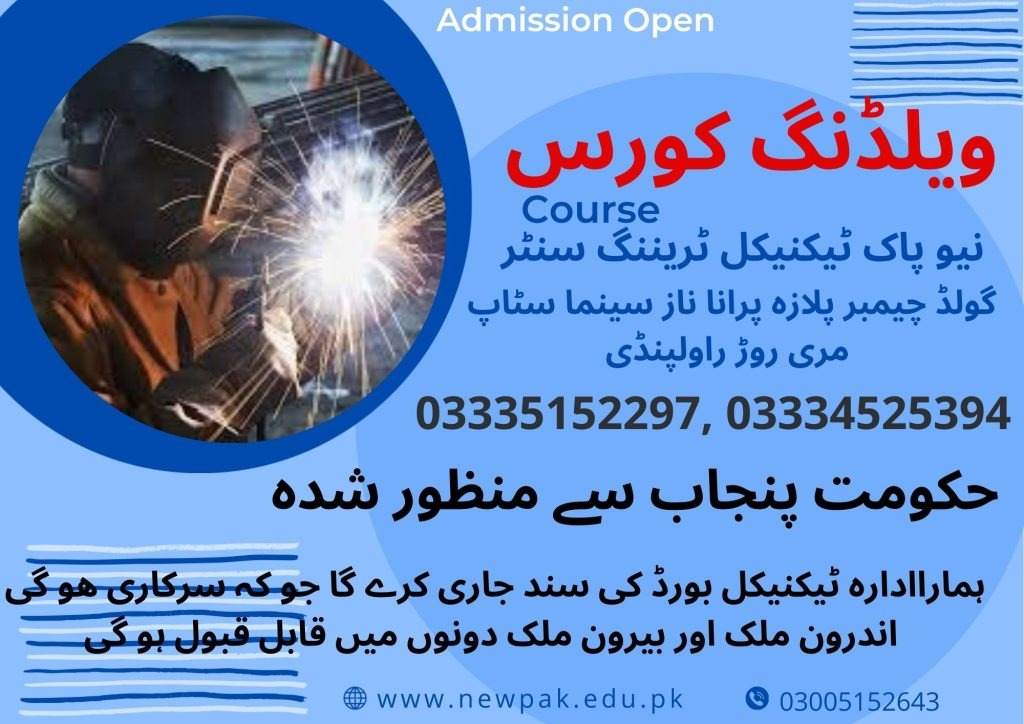
Career Opportunities
- Entry-Level Welder
- Gas Tungsten Arc Welder (TIG Specialist)
- Pipe Welder
- Structural Welder
- Welding Inspector
- Fabrication Technician
- Welding Supervisor
- Maintenance Welder
- Welding Educator/Trainer
- Quality Assurance Specialist
Conclusion
The Welding Course in Rawalpindi Islamabad offers hands-on welding classes through a 6-month basic-to-intermediate program and a 1-year advanced track. Trainees learn SMAW, GMAW, GTAW, blueprint reading, safety, and advanced techniques like pipe welding and fabrication. These welding classes prepare students for industry jobs with practical skills and certifications. They are ideal for those seeking professional training in welding and metalwork.

